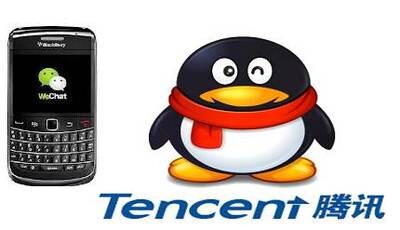hankyoreh
Links to other country sites 다른 나라 사이트 링크
Chinese firms wooing S. Korean game developers

By Kim Jae-seok, staff reporter
‘You supply the games, we’ll give you a chance at the US$1.3 billion market.’
Chinese internet and gaming companies are getting more and more aggressive in their wooing of South Korean game developers. Their goal is to supply popular South Korean games to Chinese internet users and get a jump on the gaming market, which has been growing rapidly with the greater availability of online games and smartphones. When Chinese President Xi Jinping visited South Korea recently, he was accompanied by senior managers from the country’s leading internet and gaming companies, including Alibaba and Tencent. South Korea’s gaming companies, for their part, are more than willing to take advantage of the possible avenue into a market rated as the world’s largest.
Gamevil, one of South Korea’s gaming stalwarts, announced on Aug. 1 that it had signed a Chinese service contract with Tencent for its popular role-playing game Dragon Blaze. The fast-paced smartphone game, which boasts a strong story, Eastern-flavored graphics, and automatic combat, made its domestic launch back in February.
“We have an exclusive supply contract with Tencent, which opens the way for us to target the Chinese market,” Gamevil said. “We’re already at work on the localization.”
Tencent is China’s largest internet and gaming company, with services like the mobile messenger WeChat, the social networking site Qzone, and the portal site QQ.com. In March, it made a share investment of 530 billion won (around US$500 million in two CJ affiliates, CJ E&M and CJ Games. On Aug. 1, CJ used the investment to spin off CJ E&M’s gaming unit into a new affiliate, CJ Netmarble, which is set to merge with CJ Games this October. Tencent now owns 28% of the new Netmarble. CJ Games is the maker of such popular mobile games as Modoo Marble, Monster Taming, and Cha Cha Cha.
Alibaba, a global Chinese e-commerce business, is also working to get in on South Korean gaming action. In April, it set up a South Korean branch to negotiate share investments with various local gaming companies. Some have reportedly already inked deals.
Other Chinese internet and gaming companies are already reaping the rewards from investment in their South Korean counterparts. Catching on early to the possibilities of South Korean online games, Shanda invested 100 billion won (US$97 million) to acquire a 40% stake in Actoz Soft in 2004. Since then, it has increased its share to 100%, making Actoz Soft a full-fledged affiliate. In 2010, it invested another 110 billion won (US$106.6 million) in Eyedentity Games. It is now said to be on the lookout for other new investment opportunities.
The recent trend among major Chinese internet and gaming companies suggests a strategy to seize or maintain an edge in their country‘s own rapidly growing gaming market.
“Companies like Alibaba are going after South Korean games as they turn their attention to the gaming market, while Tencent is making bolder and more diverse investments so as not to lose its advantage,” said one industry source. “The best example may be Tencent joining up with [the messaging app] Line for a joint share investment with 4:33 Creative Lab.”
South Korean gaming companies are welcoming the trend, which they see as offering a road into the Chinese gaming market and away from the domestic one, where competition and stronger regulations have been cutting into profitability.
Please direct questions or comments to [english@hani.co.kr]

Editorial・opinion
![[Column] Season 2 of special prosecutor probe may be coming to Korea soon [Column] Season 2 of special prosecutor probe may be coming to Korea soon](https://flexible.img.hani.co.kr/flexible/normal/500/300/imgdb/original/2024/0426/3317141030699447.jpg) [Column] Season 2 of special prosecutor probe may be coming to Korea soon
[Column] Season 2 of special prosecutor probe may be coming to Korea soon![[Column] Park Geun-hye déjà vu in Yoon Suk-yeol [Column] Park Geun-hye déjà vu in Yoon Suk-yeol](https://flexible.img.hani.co.kr/flexible/normal/500/300/imgdb/original/2024/0424/651713945113788.jpg) [Column] Park Geun-hye déjà vu in Yoon Suk-yeol
[Column] Park Geun-hye déjà vu in Yoon Suk-yeol- [Editorial] New weight of N. Korea’s nuclear threats makes dialogue all the more urgent
- [Guest essay] The real reason Korea’s new right wants to dub Rhee a founding father
- [Column] ‘Choson’: Is it time we start referring to N. Korea in its own terms?
- [Editorial] Japan’s rewriting of history with Korea has gone too far
- [Column] The president’s questionable capacity for dialogue
- [Column] Are chaebol firms just pizza pies for families to divvy up as they please?
- [Column] Has Korea, too, crossed the Rubicon on China?
- [Correspondent’s column] In Japan’s alliance with US, echoes of its past alliances with UK
Most viewed articles
- 1[Column] Season 2 of special prosecutor probe may be coming to Korea soon
- 2‘We must say no’: Seoul defense chief on Korean, USFK involvement in hypothetical Taiwan crisis
- 3N. Korean delegation’s trip to Iran shows how Pyongyang is leveraging ties with Moscow
- 4Amnesty notes ‘erosion’ of freedom of expression in Korea in annual human rights report
- 5[Editorial] Korea’s surprise Q1 growth requires objective assessment, not blind fanfare
- 6Division commander ordered troops to enter raging flood waters before Marine died, survivor says
- 7[Reportage] On US campuses, student risk arrest as they call for divestment from Israel
- 8Korea sees more deaths than births for 52nd consecutive month in February
- 9Is N. Korea threatening to test nukes in response to possible new US-led sanctions body?
- 10Is Japan about to snatch control of Line messenger from Korea’s Naver?